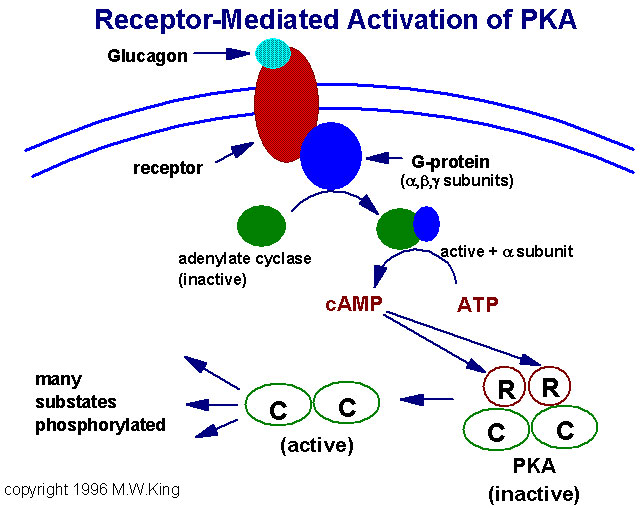
| MadSci Network: Biochemistry |
This question deals with the regulatory cascade for glycogen breakdown.
There are several hormones that affect glycogen metabolism, one of which is glucagon. In human beings, when the blood sugar level is low the alpha cells of the pancreas secrete glucagon which binds to the glucagon receptors in liver cells.
The glucagon receptor is an example of a seven pass transmembrane receptor comprised of 7 alpha helices, also known as a G-protein coupled receptor. When glucagon binds to the glucagon receptor, a conformational change occurs in the receptor which causes the alpha subunit of the associated G-protein to become activated by exchanging its bound GDP for GTP.
The GTP bound form of the alpha subunit activates adenylate cyclase which catalyzes the formation of cAMP from ATP. The increase in the intracellular concentration of cAMP causes protein kinase A (PKA) to become activated. Protein kinase A phosphorylates phosphorylase kinase which then activates glycogen phosphorylase.
The end result is that a large amount of sugar units are released. Therefore, when a human being is in a physiologically starved state the hormone glucagon causes an increase in the intracellular level of cAMP; conversely, when a human being is not in a physiologically starved state the hormone glucagon is not secreted and the intracellular level of cAMP remains low.
It is important to note that glucagon is not the only hormone that causes a change in the intracellular levels of cAMP; for example, the hormone epinephrine and the substance forskolin also increase the intracellular levels of cAMP.
This is all depicted in the figure below.

Try the links in the MadSci Library for more information on Biochemistry.